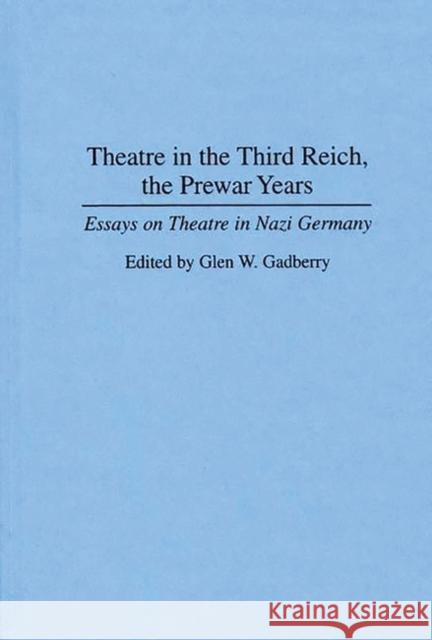Theatre in the Third Reich, the Prewar Years: Essays on Theatre in Nazi Germany » książka
Theatre in the Third Reich, the Prewar Years: Essays on Theatre in Nazi Germany
ISBN-13: 9780313295164 / Angielski / Twarda / 1995 / 200 str.
This volume considers prewar theatre in Hitler's Germany, a previously neglected subject in theatre history. An extended introduction sets the theatre scene of 1933 and charts the major theatre regulations and organizations formed that year. The initial essay examines the unified folk community used to achieve power and served by purged and revived German art. Plays that achieved great success in Nazi Germany--Die endlose Strasse by Sigmund Graff and six works by Eberhard Wolfgang Moller--are considered. In essays devoted to specific theatres, the work examines how Reinhardt's Grosses Schauspielhaus fared under the Nazis and how the regional Detmold Stadttheater was obliged to observe the new politicized aesthetics.The famous and privileged actor Werner Krauss is the subject of an essay on artistic responsibility, while a chapter on three famed directors--Grundgens, Fehling, and Hilpert--shows how artists maneuvered for artistic freedom. The Propaganda Ministry's first national festival in Dresden in 1934 is covered. The final two essays look at minority theatre--Jewish theatre in the anti-Semitic Third Reich and, as a postscript to the volume, theatre in the Nazi concentration camps.











